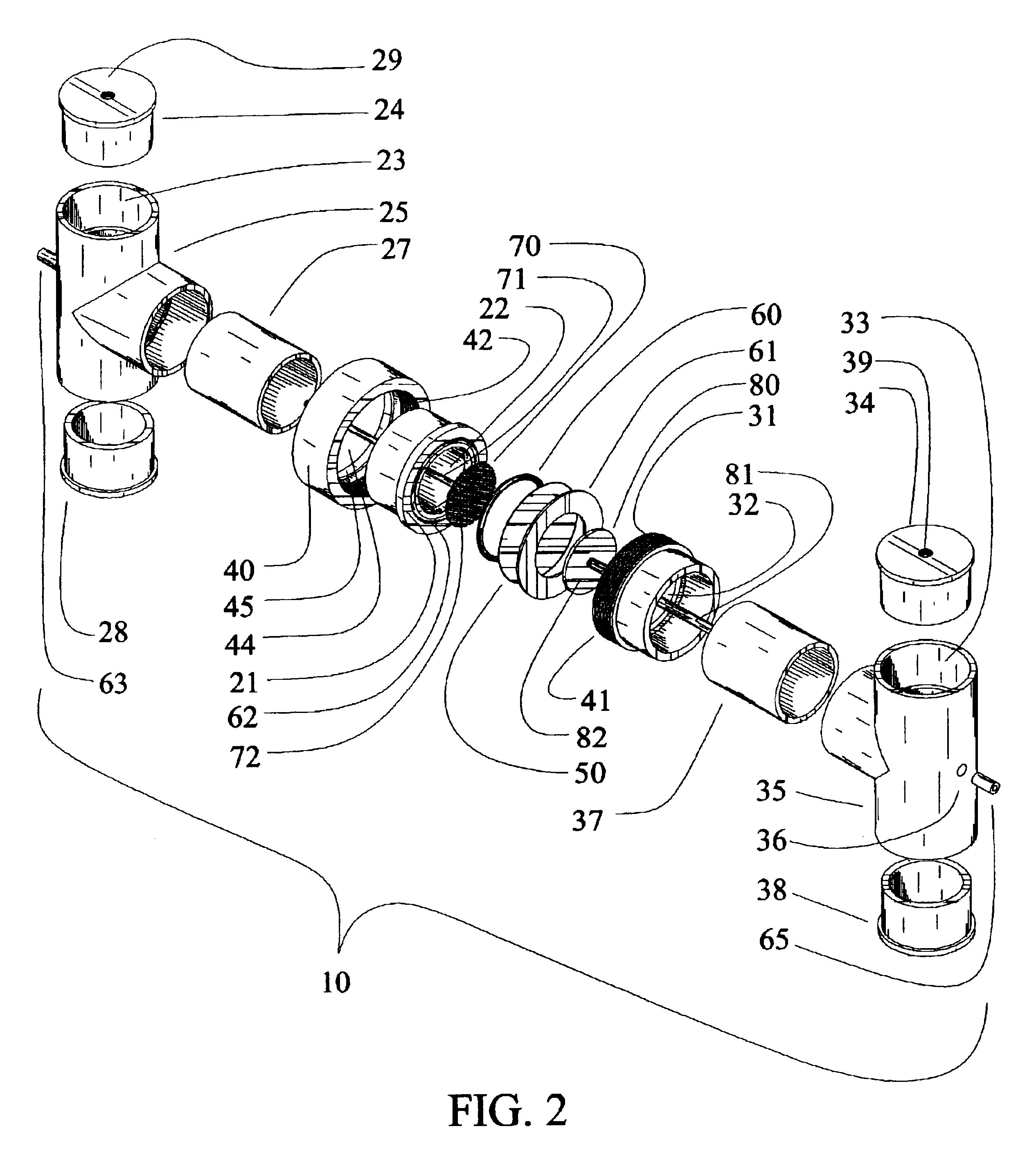Chlorine generator
a chlorine generator and generator technology, applied in the field of electrolysis cell improvement, to achieve the effect of simple installation and maintenance, and economic construction
- Summary
- Abstract
- Description
- Claims
- Application Information
AI Technical Summary
Benefits of technology
Problems solved by technology
Method used
Image
Examples
Embodiment Construction
[0027]The configuration of the invention can partake several forms. It is the intention of this narrative to describe in detail the invention for a chlor-alkali system that produces 0.01-1.0 kilograms (0.02-2.2 pounds) of chlorine gas per day. Illustrations of this type of system are shown in FIGS. 1, 2, and 3.
[0028]FIG. 1 is an isometric representation of the invention in its assembled form. As shown in FIG. 1, the invention is comprised of a cell 10 divided into an anode compartment 20 and a cathode compartment 30. Continuity or attachment of anode compartment 20 with cathode compartment 30 is provided by a cell compression collar 40.
[0029]Cell 10 is made of a rigid, non-electrically conductive material such as fiberglass, polyvinyl chloride (PVC) plastic, chlorinated polyvinyl chloride (CPVC) plastic, polyvinylidene fluoride (PVDF) plastic, polytetrafluoroethylene (PTFE) plastic or other plastics that are chemically resistant to the solutions and gases contained within cell 10. M...
PUM
| Property | Measurement | Unit |
|---|---|---|
| Electrical conductivity | aaaaa | aaaaa |
| Size | aaaaa | aaaaa |
| Energy | aaaaa | aaaaa |
Abstract
Description
Claims
Application Information
 Login to View More
Login to View More - R&D
- Intellectual Property
- Life Sciences
- Materials
- Tech Scout
- Unparalleled Data Quality
- Higher Quality Content
- 60% Fewer Hallucinations
Browse by: Latest US Patents, China's latest patents, Technical Efficacy Thesaurus, Application Domain, Technology Topic, Popular Technical Reports.
© 2025 PatSnap. All rights reserved.Legal|Privacy policy|Modern Slavery Act Transparency Statement|Sitemap|About US| Contact US: help@patsnap.com



